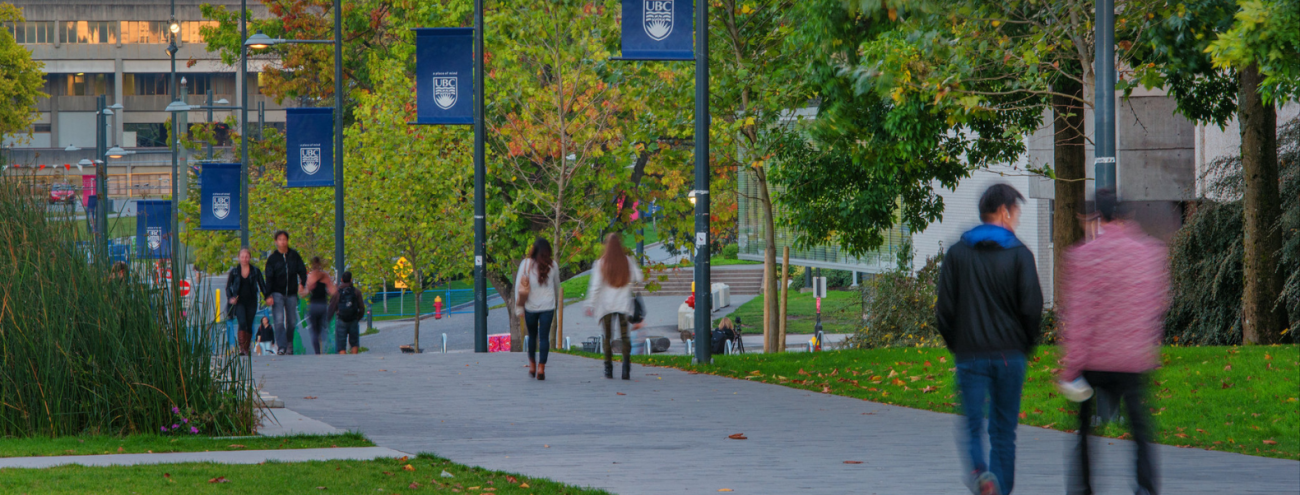
Interview: Matt Dolf
Matt Dolf is the Director of the Office of Wellbeing Strategy at UBC, providing strategic direction and capacity-building support for UBC Wellbeing. He also currently co-chairs the Canadian & International Health Promoting Campus Networks, facilitating knowledge sharing and collective action worldwide.
UBC Wellbeing is a collaborative effort to advance UBC’s commitment to becoming “a health and wellbeing promoting university where all people, places, and communities can flourish.” Matt and his team provide system-wide capacity-building support for stakeholders on initiatives that advance UBC's Wellbeing Strategic Framework by connecting people, storytelling, tracking progress, supporting planning and evaluation, and creating tools and resources for community-led action.
Q. What is the role of UBC Wellbeing?
A. The UBC Wellbeing initiative is a whole of university effort to enhance the health and wellbeing of students, staff, faculty, and the wider community. It adopts a systems and settings-based approach, addressing the places where people live, learn, work, and play. The initiative elevates collaborative leadership between units across the university and is guided by an advisory committee and action committees focused on priority areas including mental health, physical activity, food and nutrition, and our built and natural environments. We take a health promotion approach to support our people to achieve their full potential in teaching, learning, working, and research by making wellbeing a priority that guides our daily interactions, decisions, policy planning, and program development. A focus on both human and ecological wellbeing is foundational. The Office of Wellbeing Strategy takes a Collective Impact approach to act as a system-wide backbone unit for UBC Wellbeing, supporting health and wellbeing promotion on both UBC Vancouver & Okanagan campuses. We facilitate systemic change and build capacity for all UBC Community members to implement the Okanagan Charter and the Wellbeing Strategic Framework in alignment and partnership with People and Places strategies and plans.
Q. How does UBC Wellbeing promote health and wellbeing for the university community?
A. UBC’s history of leadership on health and health promotion dates back to the 1920’s. – What is new with UBC Wellbeing, established in 2014, is taking a university-wide approach to deepen our understanding of the concept of wellbeing and coordinate our work in line with the vision and principles laid out in the Okanagan Charter. UBC formally adopted the Okanagan Charter for Health Promoting Universities & Colleges in 2016, becoming the first in the world to take this formal step. The Charter is a blueprint for universities to promote health and wellbeing in all aspects of campus culture while also serving as agents of change in society to transform health and sustainability of people, places, and the planet. UBC’s Wellbeing Strategic Framework was completed in 2019 and it identifies targets and indicators in six wellbeing priority areas for our people, places and communities to flourish.
Q. How did the Campus as a Living Lab and UBC Wellbeing collaboration came about?
A. The idea of using the UBC Campus as a Living Lab approach to promote wellbeing caught our imagination right from the beginning in 2014 and has inspired a number of initiatives. The priority areas for UBC Wellbeing, such as mental health, indigenous perspectives, food security, and physical activity lend themselves extremely well to CLL as issues that can be studied on campus and inform positive change in broader society. The Campus as a Living Lab projects were identified as a framework to support these wellbeing priorities of our university community by testing, learning, and sharing knowledge. Funded and highly visible, the projects should attracts university-wide attention and emphasize collaborative leadership and capacity building across the community. The focus of these projects is on empowering individuals to take charge of their health through positive environments that support mental, physical, and social health for all, including those without current health challenges. The projects consider various aspects of the university environment, such as course content, workplace culture, commuting, and the campus itself, to identify areas for improvement and create a setting that supports the health and wellbeing of all members of the UBC community.